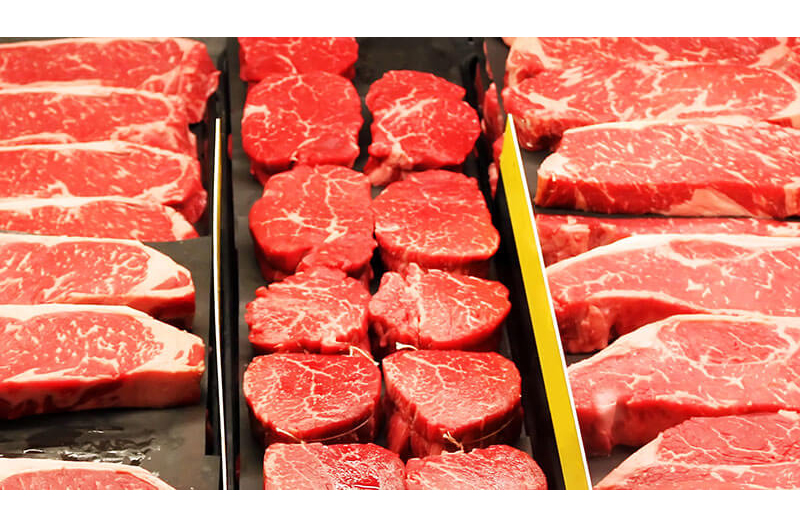The reduction of meat processing capacity caused by U.S. plant closures and slowdowns has created a massive bottleneck in the nation’s meat and livestock supply chain. Nearly two dozen plants that process beef and pork products closed in April due to the COVID-19 outbreak, while many others have had to slow their production as a result of the disease.
According to a new report from CoBank’s Knowledge Exchange division, even if the reduction of processing capacity is temporary, it will likely have a lasting impact on meat processors, livestock producers, retail stores and consumers. Meat supplies for retail grocery stores could shrink nearly 30 percent by Memorial Day, leading to retail pork and beef price increases as high as 20 percent relative to prices last year.
“Margins for cattle and hog farmers have fallen to multi-year lows,” said Will Sawyer, lead animal protein economist with CoBank. “As meat plants have closed, farmers are left with few options for their livestock, requiring herds to be culled. Shrinkage in the U.S. livestock herd will likely make the food supply shortage more acute later in the year.”
Pork and beef production is down approximately 35 percent compared to this time last year, making retail shortages and price inflation nearly assured, Sawyer added.
While pork processing is expected to pick up in the coming weeks, hog producers may still be forced to euthanize as many as seven million pigs in the second quarter alone, worth nearly $700 million at historical average prices. This would further diminish meat supplies this fall and add to the billions of dollars of losses from lower livestock prices.
Declining meat production in April will likely lead to reduced grocery store supplies in May and June. Grocery stores are likely already rationing their current meat supplies. The supply chain and inventory from the meat plant to local grocery store meat cases is less than a few weeks.
“Significant contractions in meat supplies have often led to substantial inflation of retail beef and pork prices,” said Sawyer. “In the past 20 years, retail pork prices experienced inflation of more than 10 percent just twice. And neither of those times did we see inflation climb to 20 percent, which may be coming in the months ahead.”
President Donald Trump’s executive order to reopen closed meat plants could help stem the tide of additional plant closures and pave the way for closed plants to reopen. Meat processors have instituted several measures to ensure employee safety, reduce the spread of COVID-19 and keep protein supplies moving. However, attracting enough workers to fill the thousands of vacant positions at meat plants across the U.S. may be challenging in the near-term.
For consumers, closed meat plants mean less meat in the grocery store in the weeks ahead. Up to this point, U.S. consumers have been able to rely on grocery stores as many restaurants across the country have closed in response to “stay-at-home” orders in many cities and states.
As communities reopen with only about one week of meat supply in cold storage, shortages and stockouts in the meat case could not come at a worse time. Food inflation and a weak U.S. economy is a combination that will leave many consumers in greater financial strain.
The full report, “Closed Meat Plants Today Mean Empty Meat Cases this Summer,” is available on cobank.com.
CoBank is a $158 billion cooperative bank serving vital industries across rural America. The bank provides loans, leases, export financing and other financial services to agribusinesses and rural power, water and communications providers in all 50 states. The bank also provides wholesale loans and other financial services to affiliated Farm Credit associations serving more than 70,000 farmers, ranchers and other rural borrowers in 23 states around the country.
CoBank is a member of the Farm Credit System, a nationwide network of banks and retail lending associations chartered to support the borrowing needs of U.S. agriculture, rural infrastructure and rural communities. Headquartered outside Denver, Colorado, CoBank serves customers from regional banking centers across the U.S. and also maintains an international representative office in Singapore.

